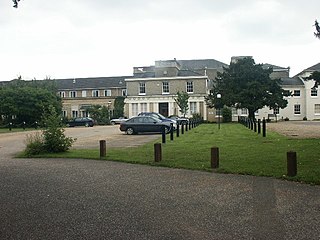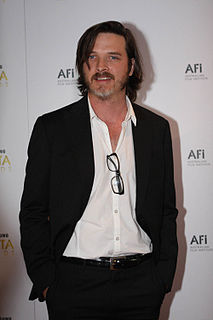A Quote by Hudson Gurney
[Young] was afterwards accustomed to say, that at no period of his life was he particularly fond of repeating experiments, or even of very frequently attempting to originate new ones; considering that, however necessary to the advancement of science, they demanded a great sacrifice of time, and that when the fact was once established, that time was better employed in considering the purposes to which it might be applied, or the principles which it might tend to elucidate.
Quote Topics
Accustomed
Advancement
Advancement Of Science
Afterwards
Applied
Attempting
Better
Considering
Demanded
Employed
Established
Even
Experiments
Fact
Fond
Frequently
Great
Great Sacrifice
His
However
Life
Might
Necessary
New
New One
Once
Particularly
Period
Principles
Purposes
Repeating
Sacrifice
Say
Science
Tend
Time
Very
Which
Young
Related Quotes
Long intervals frequently elapse between the discovery of new principles in science and their practical application... Those intellectual qualifications, which give birth to new principles or to new methods, are of quite a different order from those which are necessary for their practical application.
For this knowledge of right living, we have sought a new name... . As theology is the science of religious life, and biology the science of [physical] life ... so let Oekology be henceforth the science of [our] normal lives ... the worthiest of all the applied sciences which teaches the principles on which to found... healthy... and happy life.
The success of everything depends on intuition, the capacity of seeing things in a way which afterwards proves to be true, even though it cannot be established at the moment, and of grasping the essential fact, discarding the unessential, even though one can give no account of the principles by which this is done.
I would say you might encounter many defeats but you must never be defeated, ever. In fact, it might even be necessary to confront defeat. It might be necessary, to get over it, all the way through it, and go on. I would teach her to laugh a lot. Laugh a lot at the - and the silliest things and be very, very serious. I'd teach her to love life, I can bet you that.
These principles with due regard to time and place, must, in accordance with Christian prudence, be applied to all schools, particularly in the most delicate and decisive period of formation, that, namely, of adolescence; and in gymnastic exercises and deportment special care must be had of Christian modesty in young women and girls which is so gravely impaired by any kind of exhibition in public.
I don't think I would have been a good architect. Really, I have thought about this from time to time, and I might have wound up like my father, who never did find that which he could devote his life to. He sort of drifted from job to job. He was a traveling salesman, he was a bookkeeper, he was an office manager, he was here, there, there. And however enthusiastic he was at the beginning, his job would bore him. If I hadn't had the writing, I think I might have replicated what he was doing, which would not have been good.
If you love music hear it; go to operas, concerts, and pay fiddlers to play to you; but I insist upon your neither piping nor fiddling yourself. It puts a gentleman in a very frivolous, contemptible light; brings him into a great deal of bad company; and takes up a great deal of time, which might be much better employed.
How few of us appreciate the fact that a very great deal of physical suffering in after life comes from bad mental training in childhood! I do not mean suffering of an imaginary kind; I mean disease which may entirely ruin a life which might have been of use to the world, and which surely would have been happier but for the lost health. Many a chronic invalid might have preserved his health had he been taught to use his brain properly when a child.
There is not a single rule, however plausible, and however firmly grounded in epistemology, that is not violated at some time or other. It becomes evident that such violations are not accidental events, they are not results of insufficient knowledge or of inattention which might have been avoided. On the contrary, we see that they are necessary for progress.
What is necessary for 'the very existence of science,' and what the characteristics of nature are, are not to be determined by pompous preconditions, they are determined always by the material with which we work, by nature herself. We look, and we see what we find, and we cannot say ahead of time successfully what it is going to look like. ... It is necessary for the very existence of science that minds exist which do not allow that nature must satisfy some preconceived conditions.

































